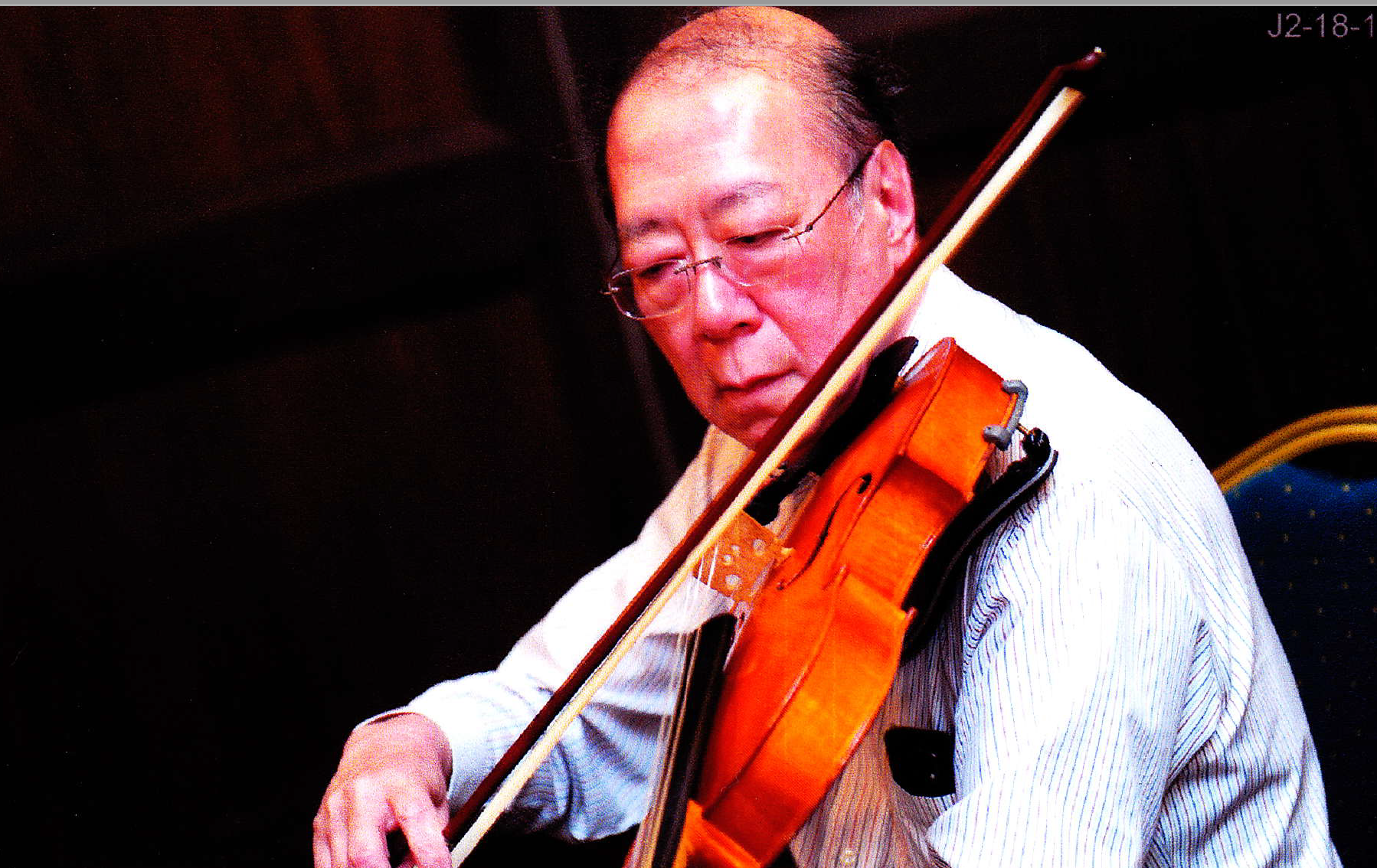Note: In light of many of us receiving our SkillsFuture credits by 1 Oct 2020 (and for some 31 Dec 2020), the following account is part two of RICE’s Extreme Upskilling series, where we speak with an individual who has gone above and beyond the norm in what we now refer to as ‘skills upgrading’. You can read part one here. This account has been lightly edited for clarity.
My name is Ronald Paul Ng and I’m 74 this year.
As a child, I grew up in a middle-class family in Hong Kong and found my passions in reading and music. As far as I can recall, I was always at the bottom of my class in primary school. Then I took an interest in playing the violin and the viola and somehow, leapt to the top of my class.
While still a student, I was asked to join the Hong Kong Philharmonic Orchestra. I remember seeing the professionals getting paid to attend rehearsals and concerts while I, being just a student, was only paid for the concerts (not the rehearsals).
From then on, I was spurred to learn the violin and viola even more. Over time, I fell in love with it. My appreciation for music grew. While one aspect of it is learning the techniques to master a musical instrument, the other aspect is fitting in with an orchestra. The meta-lesson here is harmony, which is your ability to listen to other musicians and collaborate with them.
This also helped me excel in class, sometimes without even much studying! To this day, I believe music and its collaborative nature opened up certain channels in my brain, allowing me to understand concepts, both inside and outside of the classroom.
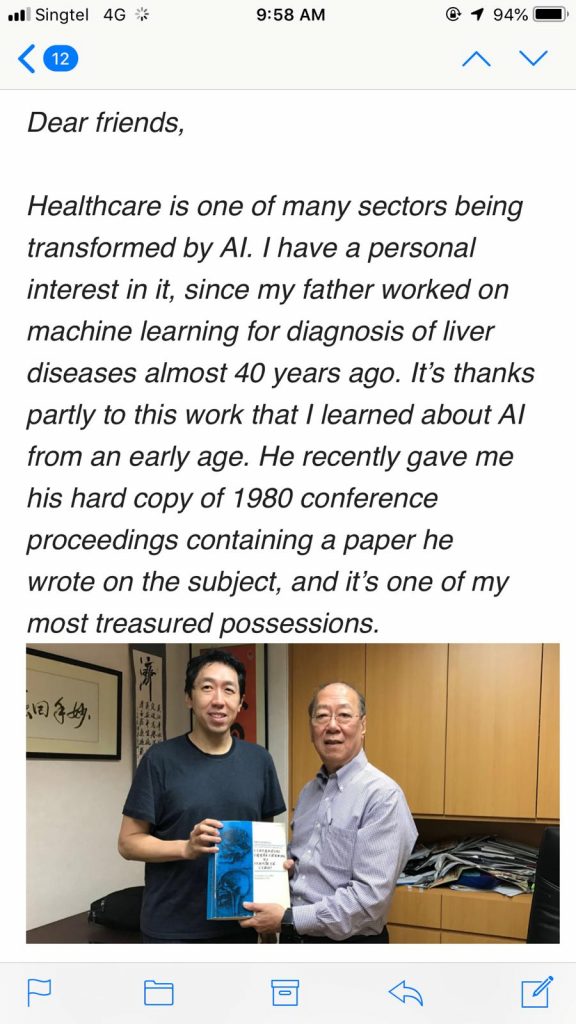
At first, I didn’t think much of it. But little by little, I would continuously learn and take up more courses over the years. Today, I’ve completed 146 courses and am still going!
If you ask me why I did it, I don’t have a straight answer. Maybe it’s the same way I perceive my music and being part of an orchestra. I did it simply for the love of doing it.
The Singaporean Trooper
After graduating from Hong Kong University and having become a specialist, I came to Singapore in 1984, aged 38, to start my private practice as a doctor. Yet, while doing so, I also volunteered with the SAF as a medic.
At first, I went through the Military Medical Course with other volunteer nurses and doctors, and became a captain. After a few years, I was sent to attend an Advance Medical Officer Course. When the OC of a company could not attend ICT, I was appointed acting OC and soon after, the actual OC.
A few exercises later, I was made Major. During in-camp training, I was also the senior officer in charge of live firing exercises. Come to think about it, it was really stressful.
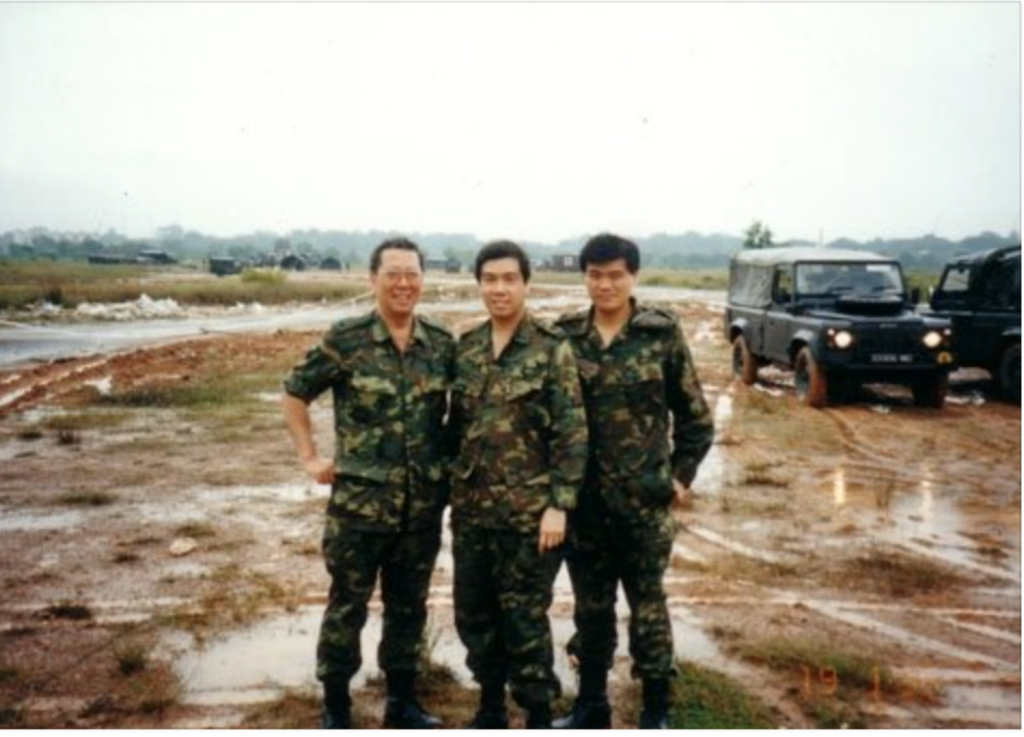
There was once, when the men were being taught how to set up IV drips in camp, I let them set up on me, knowing they might fail. After that, they would be willing to do it to each other for practice.
The Silver Lining of Taking An Unexpected Course
In case you’re wondering, no, taking online courses is not my day job. But I’m glad to admit that my interest in lifelong learning has taken me places, from the SAF to my current workplace, and the digital space.
I currently work (still working at 74!) as a specialist in haematology, or blood-related diseases, at the Icon Haematology Centre in Singapore. I am also a Principal Mediator with the Singapore Mediation Centre and Volunteer Court Mediator with the State Court.
When I signed up for Coursera in 2012, I just took whatever I thought was interesting. I started with any courses just to see what they were like. Eventually, economics-based courses like Game Theory and Agent-Based Modelling became my main interests.
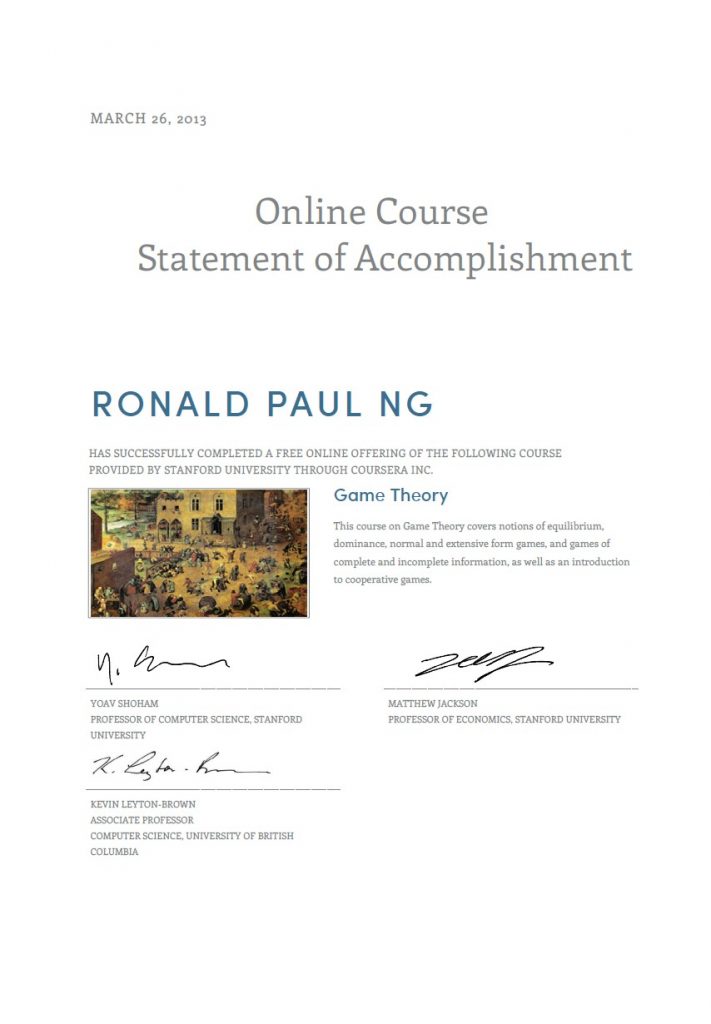
Because he’d been out of his home country for more than 3 months, his blood test didn’t show any evidence of that. However, recalling my online course, I learned that it’s possible to measure the level of mercury in our hair. When hair first starts to grow, the blood level of mercury (if traces of it exist), would be present in its tip.
So I approached NTU, where I took the Forensic Medicine course, and spoke with the professor.
He asked for a strand of my patient’s hair. Lo and behold, the tip of the man’s hair had high concentrations of mercury, which proved my patient’s testimony—and justified my taking the online course!
This is one example where I believe it is good to know about other disciplines and having cross-domain knowledge. You never know their true value until they hit you.
A specialist in a particular field of knowledge is someone who knows more and more about something, but in the end, knows everything about nothing.
Establishing Routines But Looking Beyond the Science
Over the years, while taking my online courses, I’ve learned to develop a routine. I make notes on my tablet or on Evernote. I make a conscious decision to schedule my online lectures and do my assignments across different days of the week.
In terms of cost, I can’t recall if I’ve spent all that much with the online courses. Most of the time, if you don’t want the certificate, it costs nothing. The courses from London University cost the most, but the ones I took were about US$50 each (no, I didn’t get any discounts even though my son’s the co-founder of Coursera).
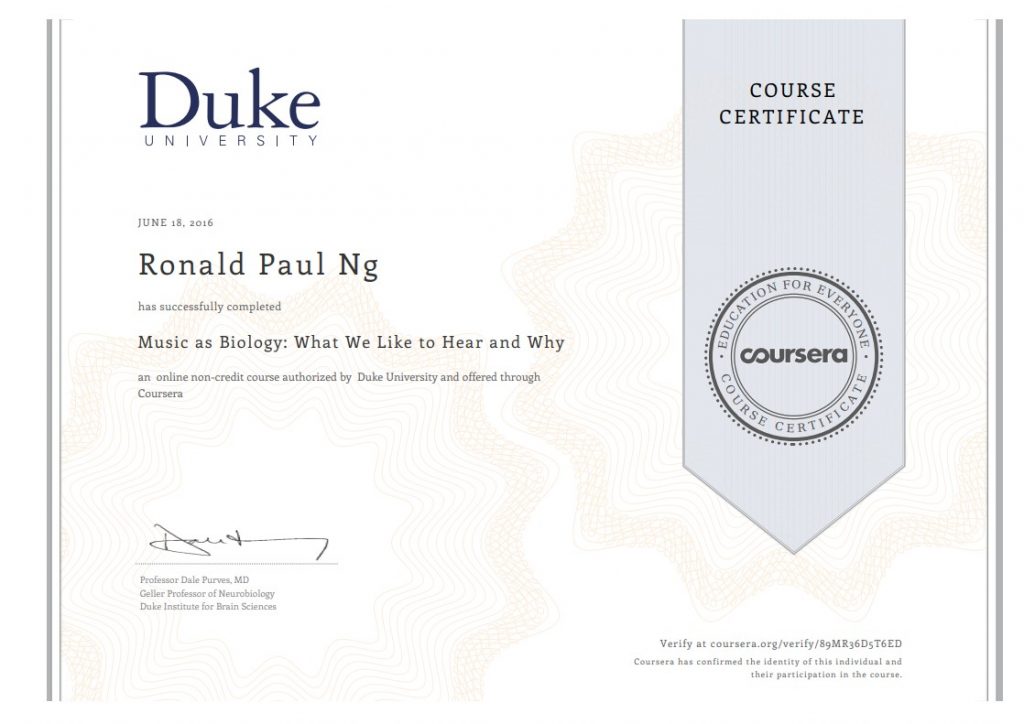
After days of ICT in the field, with no facilities for washing and days of army rations, returning to base after field training and taking that first cold shower from a hose felt heavenly. That first plate of Hokkien mee at the hawker centre—better tasting than any food in a Michelin-starred restaurant. These life lessons taught me that we need very little in life to make us happy, provided we have that frame of mind to enjoy whatever we have.
Being trained and involved in mediation has also made me realise that my practice in medicine is more than just scientific knowledge to help the sick. It is an art, especially when dealing with people and communicating different aspects of their well-being to them.
Similarly, most of us have this idea that learning is simply to learn a skill in order to “upgrade” and earn more money.
It’s more than that.
The joy of learning helps keep the mind sharp and allows us to appreciate the beauty of the subject matter. When I did a course on Einstein’s Special Relativity, I was in awe of the wonders of the universe and how they are structured.
For lack of a better phrase, it blew my mind.
Personally, we need to look at our children and learn like them. Children are always asking why this, why that, and wondering how things work. We need to remain mentally young and have the same sense of wonderment.
Lifelong learning is not just a matter of learning something useful. It is a way to keep our minds young, just like how picking up that violin years ago, has brought me to where I am today.
Listed by Course Name / Discipline / University / Year and Month of Completion / Online Course Platform, and sorted from earliest to latest date.
- Model Thinking / Logic / Michigan / 2012 December / Coursera
- New History for a New China 1700-2000 Part I / Social Science / HKUST / 2013 August / Coursera
- Plagues, Witches, and War: The Worlds of Historical Fiction / Literature / Virginia / 2013 December / Coursera
- Conditions of War and Peace / Political Science / Tokyo / 2013 December / Coursera
- Diabetes: Diagnosis, Treatment and Opportunities / Medicine / UCSF / 2013 December / Coursera
- Rationing and Allocating Scarce Medical Resources / Ethics / Pennsylvania / 2013 July / Coursera
- Game Theory / Economics / Stanford / 2013 March / Coursera
- Beginner’s Guide to Irrational Thinking / Psychology / Duke / 2013 May / Coursera
- Know Thyself / Philosophy / Virginia / 2013 May / Coursera
- Science, Technology and Society in China I / Social Science / HKUST / 2013 May / Coursera
- Social Psychology / Psychology / Wesleyan / 2013 October / Coursera
- From the Big Bang to Dark Energy / Astronomy / Tokyo / 2013 October / Coursera
- English Common Law: Structure and Principles / Law / Birkbeck College, London / 2013 September / Coursera
- Fiction of Relationship / Literature / Brown / 2013 September / Coursera
- Think Again: How to Argue / Logic / Duke / 2013 September / Coursera
- Introduction to Philosophy / Philosophy / Edinburgh / 2013 September / Coursera
- Clinical Problem Solving / Medicine / UCSF / 2013 September / Coursera
- Creative Problem Solving / Design / Minnesota / 2014 April / Coursera
- Confronting the Big Questions: Highlights of Modern Astronomy / Astronomy / Rochester / 2014 April / Coursera
- Analysing the Universe / Astronomy / Rutgers / 2014 April / Coursera
- Preventing Chronic Pain: A Human Systems Approach / Medicine / Minnesota / 2014 August / Coursera
- Introduction to Forensic Science / Forensic / NTU / 2014 August / Coursera
- Revolutionary Ideas: Introduction to Legal and Political Philosophy / Political Science / Pennsylvania / 2014 December / Coursera
- Fundamentals of Rehearsing Music Ensembles / Music / North Carolina / 2014 July / Coursera
- Developing Your Musicianship / Music / Berklee / 2014 June / Coursera
- International Human Rights Law: Prospects and Challenges / Law / Duke / 2014 June / Coursera
- AstroTech: The Science and Technology behind Astronomical Discovery / Astronomy / Edinburgh / 2014 June / Coursera
- Data Scientist’s Toolbox / Computer / John Hopkins / 2014 June / Coursera
- Moralities of Everyday Life / Psychology / Yale / 2014 March / Coursera
- Visual Perception and the Brain / Neuroscience / Duke / 2014 November / Coursera
- Creativity, Innovation and Change / Design / Pennsylvania / 2014 October / Coursera
- Programming for Everyday (Python) / Computer / Michigan / 2014 September / Coursera
- Emergence of Life / Paleontology / Illinois / 2014 September / Coursera
- Astronomy: Exploring Time and Space / Astronomy / Arizona / 2015 April / Coursera
- Successful Negotiation: Essential Strategies and Skills / Business / Michigan / 2015 April / Coursera
- Antimicrobial Stewardship / Medicine / Stanford / 2015 April / Coursera
- Finance for Non-Financial Professionals / Business / UCI / 2015 April / Coursera
- Introduction to Classical Music / Music / Yale / 2015 April / Coursera
- The Art of Negotiation / Business / UCI / 2015 April / Coursera
- Communication in the 21st Century Workplace / Business / UCI / 2015 April / Coursera
- Effective Problem-Solving and Decision-Making / Business / UCI / 2015 April / Coursera
- Logic: Language and Information I / Logic / Melbourne / 2015 April / Coursera
- Cosmology / Astronomy / Australian National University / 2015 August / edX
- Psychology of Popularity / Psychology / North Carolina / 2015 August / Coursera
- Creative Problem Solving and Decision Making / Design / Delft University of Technology / 2015 August / edX
- Dog Emotion and Cognition / Psychology / Duke / 2015 August / Coursera
- Soul Beliefs: Causes and Consequences Unit 2: Belief Systems / Philosophy / Rutgers / 2015 August / Coursera
- Role of Global Capital Markets / Business / Melbourne / 2015 August / Coursera
- Economic Growth and Distributive Justice / Economics / Tel Aviv / 2015 December / Coursera
- Understanding China, 1700-2000 Part II / Political Science / HKUST / 2015 December / Coursera
- A Law Student’s Toolkit / Law / Yale / 2015 December / Coursera
- Ancient Egypt: A history in six objects / Egyptology / Manchester Museum / 2015 December / Coursera
- Origins – Formation of the Universe, Solar System, Earth and Life / Astronomy / Copenhagen / 2015 February / Coursera
- Introduction to Consumer Neuroscience and Neuromarketing / Neuroscience / Copenhagen Business School / 2015 February / Coursera
- Philosophy and the Sciences / Philosophy / Edinburgh / 2015 January / Coursera
- How to Change the World / Social Science / Wesleyan / 2015 January / Coursera
- Writing for Young Readers: Opening the Treasure Chest / Writing / Commonwealth Education Trust / 2015 July / Coursera
- Greek and Roman Mythology / Literature / Pennsylvania / 2015 July / Coursera
- Dino 101: Dinosaur Paleobiology / Paleontology / Alberta / 2015 June / Coursera
- Science of the Solar System / Astronomy / Caltech / 2015 June / Coursera
- Programming in Scratch / Computer / Harvey Mudd / 2015 June / edX
- Soul Beliefs: Causes and Consequences Unit 1: Historical Foundations / Philosophy / Rutgers / 2015 June / Coursera
- Language and Tools of Financial Analysis / Business / Melbourne / 2015 June / Coursera
- Write Like Mozart: Introduction to Classical Music Composition NUS / 2015 March / Music Coursera
- Gamification / Business / Pennsylvania / 2015 March / Coursera
- Critical Thinking in Global Challenges / Logic / Edinburgh / 2015 March / Coursera
- Astrobiology and the Search for Extraterrestrial Life / Astronomy / Edinburgh / 2015 May / Coursera
- Miracles of Human Language: An Introduction to Linguistics / Linguistics / Leiden / 2015 May / Coursera
- The Power of Macroeconomics:Economic Principles in the Real World / Business / UCI / 2015 May / Coursera
- Buddhism and Modern Psychology / Psychology / Princeton / 2015 November / Coursera
- Principles of Macroeconomics / Business / Melbourne / 2015 November / Coursera
- Alternative Approaches to Valuation and Investment / Business / Melbourne / 2015 October / Coursera
- Journalism Skills for Engaged Citizens / Journalism / Melbourne / 2015 October / Coursera
- Tibetan Buddhist Meditation and the Modern World: Lesser Vehicle / Philosophy / Virginia / 2015 September / Coursera
- Modern and Postmodern Part I / Literature / Wesleyan / 2015 September / Coursera
- Corporate Financial Decision-Making for Value Creation / Business / Melbourne / 2015 September / Coursera
- Using Python to Access Web Data / Computer / Michigan / 2016 April / Coursera
- Global Warming I: The Science and Modelling of Climate Change / Climatology / Chicago / 2016 August / Coursera
- Judaism Through Its Scriptures / Religion / Harvard / 2016 August / edX
- Machine Learning / Computer / Stanford / 2016 August / Coursera
- Beauty of Kunqu Opera / Music / HK Chinese University / 2016 August / Coursera
- Creative Writing: The Craft of Style / Writing / Wesleyan / 2016 August / Coursera
- Visualising Japan I / History / MIT / 2016 December / edX
- Introduction to Complexity / Complexity / Santa Fe Institute / 2016 December / Santa Fe Institute
- Visualizing Postwar Tokyo I / Sociology / Tokyo University / 2016 December / edX
- Creative Writing Capstone project / Writing / Wesleyan / 2016 December / Coursera
- Oriental Beliefs – Between Reason and Traditions / History / Universite catholique de Louvain / 2016 December / edX
- Islam Through Its Scriptures / Religion / Harvard / 2016 July / edX
- Creative Writing: The Craft of Setting and Description / Writing / Wesleyan / 2016 July / Coursera
- Creative Writing: The Craft of Plot / Writing / Wesleyan / 2016 June / Coursera
- Creative Writing: the Craft of Character / Writing / Wesleyan / 2016 June / Coursera
- Programming for Everybody (Getting Started with Python) / Computer / Michigan / 2016 March / Coursera
- Python Data Structure / Computer / Michigan / 2016 March / Coursera
- From Trust to Promise to Contract / Law / Harvard / 2016 March / edX
- Religious Literacy: Traditions and Scriptures / Religion / Harvard / 2016 March / edX
- Chinese Politics Part I / Political Science / HKUST / 2016 March / Coursera
- Biology Meets Programming: Bioinformatics for Beginners / Computer / UC San Diego / 2016 March / Coursera
- The Art of Poetry / Literature / Boston / 2016 May / edX
- Christianity Through Its Scriptures / Religion / Harvard / 2016 May / edX
- Buddhism Through Its Scriptures / Religion / Harvard / 2016 May / edX
- Chinese Politics Part II / Political Science / HKUST / 2016 May / Coursera
- Introduction to Ancient Egypt and its Civilisation / History / Pennsylvania / 2016 November / Coursera
- Understanding Einstein: The Special Theory of Relativity / Science / Stanford / 2016 November / Coursera
- Magic in the Middle Ages / History / Barcelona / 2016 October / Coursera
- Fall and Rise of Jerusalem / History / Tel Aviv / 2016 October / Coursera
- Responsive Website: HTML, CSS and Javascript / Computer / London University / 2016 October / Coursera
- Viral Marketing and How to Craft Contagious Content / Business / Pennsylvania / 2016 September / Coursera
- The Bible’s Prehistory, Purpose and Political Future / Religion / Emory / 2016 September / Coursera
- Fractals and Scaling / Complexity / Santa Fe Institute / 2017 April / Sante Fe Institute
- Business Applications of Hypothesis Testing and Confidence Interval Estimation / Business / Rice University / 2017 April / Coursera
- Linear Regression for Business Statistics / Business / Rice University / 2017 April / Coursera
- Emergent Phenomenon in Science and Everyday Life / Complexity / University of California, Irvine / 2017 February / Coursera
- Intellectual Humility / Philosophy / Edinburgh / 2017 January / Coursera
- Philosophy, Science and Religion: Philosophy and Science / Philosophy / Edinburgh / 2017 January / Coursera
- De-Mystifying Mindfulness / Psychology / Leiden / 2017 January / Coursera
- Global Diplomacy – Diplomacy in the Modern World / Social Science / London University / 2017 January / Coursera
- Film, Images & Historical Interpretation in the 20th Century: The Camera Never Lies / Humanities / London University / 2017 June / Coursera
- Basic Data Descriptors, Statistical Distributions, and Application to Business Decisions / Business / Rice University / 2017 March / Coursera
- Quantum Mechanics / Science / Harvard / 2017 May / edX
- Introduction to Data Analysis using Excel / Computer / Rice University / 2107 February / Coursera
- Systems Science and Obesity / Complexity / John Hopkins / 2017 August / Coursera
- Systems Thinking in Public Health / Complexity / John Hopkins / 2017 August / Coursera
- Justice / Philosophy / Harvard / 2017 August / edX
- Introduction to Music Theory / Music / Berklee / 2017 Sept / edX
- Philosophy, Science and Religion: Philosophy and Religion / Philosophy / Edinburgh / 2017 Sept / Coursera
- Introduction to Agent Based Modelling / Complexity / Santa Fe / 2017 Sept / Santa Fe Institute
- Introduction to Dynamical Systems and Chaos / Complexity / Santa Fe / 2017 October / Santa Fe Institute
- Network Dynamics of Social Behavior / Complexity / University of Pennsylvania / 2017 November / Coursera
- Wonders of Ancient Egypt / Egyptology / University of Pennsylvania / 2017 November / Coursera
- How Music can change your Life / Music / Melbourne University / 2017 December / Coursera
- Musicianship: Chord Chart, Diatonic Chords, and Minor Keys / Music / Berklee / 2017 December / Coursera
- Age of Cathedrals / Humanities / Yale / 2018 January / Coursera
- Explorations in Confucian Philosophy / Humanities / NTU / 2018 June / Coursera
- Business, International Relations and the Political Economy / Economics, Political Science / LSE / 2018 August / LSE
- IRB and Ethics in Human Research / Ethics / CITI / 2018 October / CITI
- Analysing Complexity I / Complexity / Macquarie University / 2018 December / Coursera
- Analysing Complexity II (Evaluating Problems) / Complexity / Macquarie University / 2019 Feb / Coursera
- Origin of Life / Complexity / Santa Fe Complexity Explorer / 2019 Sept / Santa Fe Institute
- Computational Social Science Method / Social Science / UC Davis / 2020 July / Coursera
- Big Data, Artificial Intelligence, and Ethics / AI / UC Davis / 2020 July / Coursera
- Network Analysis / Social Science / UC Davis / 2020 August / Coursera
- Computer Simulations / Computer / UC Davis / 2020 August / Coursera
- Interpersonal, Developmental, and Evolutionary Perspectives of the Mind / Games Theory / University of Colorado / 2020 August / Coursera
- Computational Social Science Capstone Project / Social Science / UC Davis / 2020 September / Coursera
- What is the “Mind” and what is Artificial Intelligence / AI / University of Colorado / 2020 September / Coursera
- Methods for Solving Problems / Psychology / University of Colorado / 2020 September / Coursera
If you haven’t already, follow RICE on Instagram, Spotify, Facebook, and Telegram.

